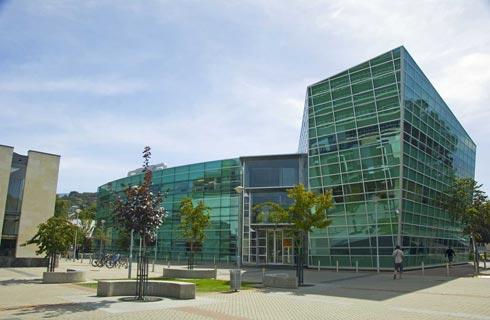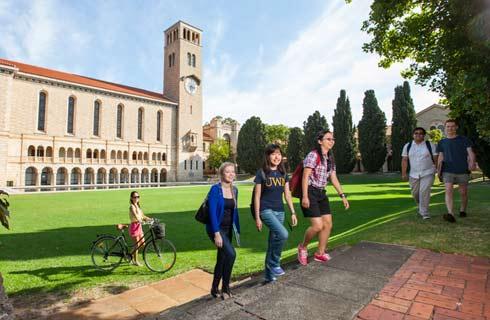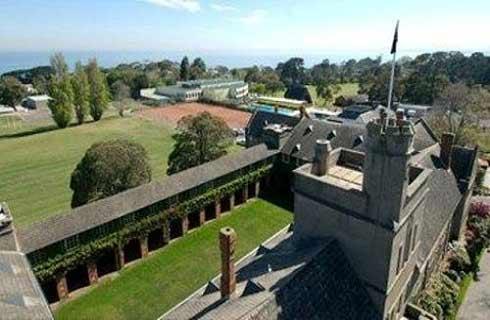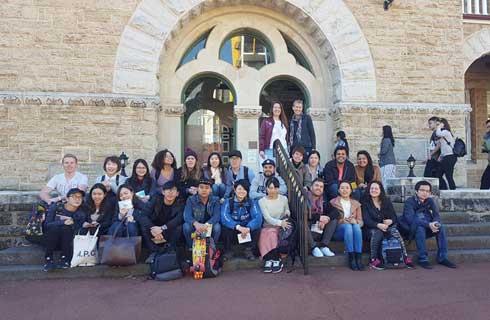Master of Science in Neuroscience

学历文凭
Masters Degree

专业院系
神经科学

开学时间

课程时长

课程学费

国际学生入学条件
Complete the application form and uplad application materials (with the exception of letters of reccomendation) as ONE PDF when prompted.
Most recent transcript (unofficial)
Interest statement (a personal statement describing your interests in the program, general research interests, and future goals) Limit 1 page
Research project statement (a description of the project / project area you intend on pursuing for your MS degree) Limit 1 page
Letter of recommendation from your current research mentor
Letter of recommendation from a neuroscience course instructor other than your research mentor
For applicants whose native language is not English, the applicant must have a minimum TOEFL IBT (IBT Home Edition also accepted) 80, IELTS - 6.5
Most recent transcript (unofficial)
Interest statement (a personal statement describing your interests in the program, general research interests, and future goals) Limit 1 page
Research project statement (a description of the project / project area you intend on pursuing for your MS degree) Limit 1 page
Letter of recommendation from your current research mentor
Letter of recommendation from a neuroscience course instructor other than your research mentor
For applicants whose native language is not English, the applicant must have a minimum TOEFL IBT (IBT Home Edition also accepted) 80, IELTS - 6.5
IDP—雅思考试联合主办方

雅思考试总分
6.5
了解更多
- 雅思总分:6.5
- 托福网考总分:80
- 托福笔试总分:160
- 其他语言考试:Michigan English Test (MET) - 58
CRICOS代码:
申请截止日期:请 与IDP联系 以获取详细信息。
课程简介
The Neuroscience Graduate Program (NGP) is a dynamic, multidisciplinary program focused on current neuroscience concepts and techniques to train & award students Ph.D. or M.S. degrees in Neuroscience. It is one of six programs coordinated through the Molecular and Biomedical Sciences Umbrella. NGP faculty available to mentor students come from a number of different UM Colleges and Departments and specialize in a variety of perspectives and approaches, including: neurochemistry, neuromolecular dynamics and drug design, cellular neurobiology and physiology, behavioral neuroscience, biophysics, and the neurobiology of disease. Dr. Mark Grimes serves as the Director of the NGP. Participating faculty and students also benefit from the close association between the NGP and the Center for Structural & Functional Neuroscience (CSFN).<br><br>Courses start at the end of August each year, with general coursework and research rotations the focus in year one. At the end of the first year, students are expected to select an advisor in whose lab they will work to conduct independent research towards a dissertation throughout their tenure in the program. The Research Advisor serves as a mentor to the student and assists the student in assuring that all deadlines and procedures are followed. Prior to selection of a research advisor, the Graduate Education Committee will advise first year students.<br><br>In addition to selection of an Advisory Committee, students must prepare a plan of study that includes all courses to be taken. The plan of study must subsequently be endorsed by the Advisory Committee. Any changes in the plan of study, once approved, require approval of the Advisor, Advisory Committee, and the Graduate Standards Committee.<br><br>During the second year, students must complete an informational seminar (BMED 594) on an informational topic approved by the Research Advisor. At the beginning of the third year, students must complete the comprehensive qualifying exam. This exam includes both a written component, typically an NRSA-type format grant proposal, and an oral portion that evaluates the candidate's general knowledge of the neuroscience discipline, and their ability to apply that knowledge in the research setting and in written and oral communication of research and scientific ideas. A process for selection of the written proposal topic is described in Program Policies.
相关申请

预科

奖学金

实习机会

在校学习

跨境学习

校园授课-线上开始

在线/远程学习
本校相关课程
Bachelor of Arts in Communicative Sciences and Disorders

学历文凭
Bachelor Degree
下一个开始日期
课程费用总额
Bachelor of Science in Environmental Science and Sustainability - Resource Conservation

学历文凭
Bachelor Degree
下一个开始日期
课程费用总额
Bachelor of Arts in Russian

学历文凭
Bachelor Degree
下一个开始日期
课程费用总额
Bachelor of Arts Social Work

学历文凭
Bachelor Degree
下一个开始日期
课程费用总额
Bachelor of Arts in Sociology - Criminology

学历文凭
Bachelor Degree
下一个开始日期
课程费用总额
Bachelor of Arts in Spanish

学历文凭
Bachelor Degree
下一个开始日期
课程费用总额
其他相关课程
Master of Science in Neuroscience

匹兹堡大学
泰晤士高等教育世界大学排名:

学历文凭
Masters Degree
下一个开始日期
课程费用总额
心理学文学硕士-认知和行为神经科学。

乔治梅森大学
泰晤士高等教育世界大学排名:426

学历文凭
Masters Degree
下一个开始日期
课程费用总额
神经诊断技术艺术副学士

贝尔维尤学院
泰晤士高等教育世界大学排名:

学历文凭
Associate Degree
下一个开始日期
课程费用总额
神经科学理学学士-Neuromotor(Honours)Co-Op

布鲁克大学
泰晤士高等教育世界大学排名:

学历文凭
Bachelor Degree with Honours
下一个开始日期
课程费用总额
Doctor of Philosophy in Neuroscience

加州大学洛杉矶分校
泰晤士高等教育世界大学排名:19

学历文凭
Ph.D.
下一个开始日期
课程费用总额
Bachelor of Arts in Neuroscience and Behavior (Premed)

圣母大学
泰晤士高等教育世界大学排名:194

学历文凭
Bachelor Degree
下一个开始日期
课程费用总额




